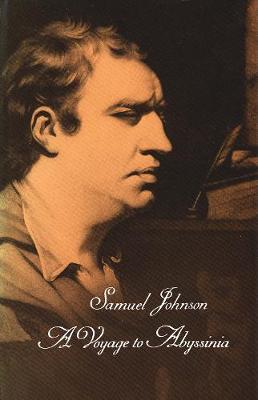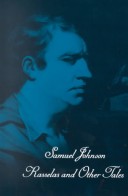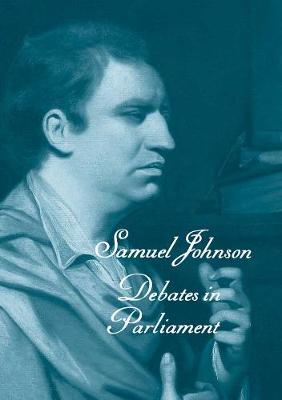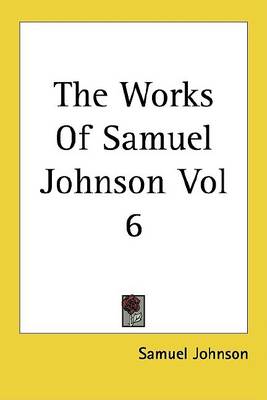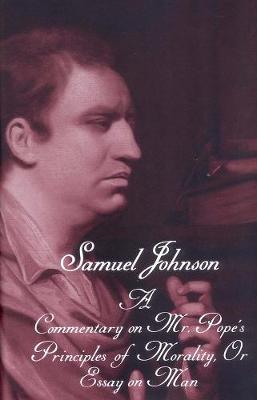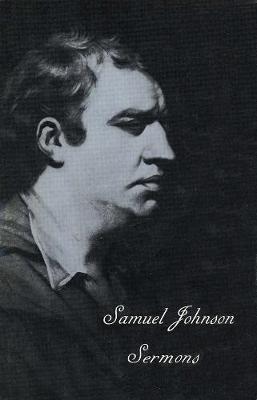The Yale Edition of the Works of Samuel Johnson
2 primary works • 16 total works
Book 15
Book 16
This volume brings together three of Johnson’s longest fictional pieces, showing the unusual similarities in some of their main themes and emphases. Rasselas, a philosophical tale that embodies the full range of Johnson’s thinking on moral, psychological, and literary matters, has been described as central to an understanding of Johnson and his age. “The Vision of Theodore,” a moral allegory, and “The Fountains,” a fairy tale, demonstrate the variety of Johnson’s narrative skills.
The three works are introduced and annotated by Gwin J. Kolb, an authority on Rasselas. The introductions set the scene surrounding the creation and printing of the texts and cover a wider range of topics than has been addressed in previous editions. And the historical notes, which concentrate on clarifying the meaning of numerous words, comprise the largest body of glosses that has ever accompanied the three pieces. The textual notes provide a record of Johnson’s revisions of Rasselas and of Mrs. Piozzi’s manuscript transcription of “The Fountains.” This book will be the standard edition of these notable works.
The English critic, biographer, and poet Samuel Johnson was among the most influential figures of the eighteenth century. This twentieth and final volume of the Yale Edition of the Works of Samuel Johnson presents the author’s occasional writings, including prefaces, proposals, dedications, introductions, book reviews, public letters, appeals, and school exercises. Notably, it includes the letters and addresses that Johnson wrote for the convicted clergyman William Dodd. Edited by O M Brack, Jr., and Robert DeMaria, Jr., this volume brings a treasure trove of Johnson’s lesser‑known writings to a contemporary audience.
From July 1741 to March 1744, Samuel Johnson composed speeches based on the actual debates in Parliament for publication in the Gentleman's Magazine. Because it was then illegal to print any account of parliamentary activities, the magazine published Johnson's contributions as the rather thinly disguised "Debates in the Senate of Magna Lilliputia." These three volumes present Johnson's entire debate project with accompanying critical notes and, for the first time, retain his original Lilliputian terminology.
The Lives of the Poets was the crowning achievement of Samuel Johnson's rich and varied literary life. Initially planned as a series of rapid-fire prefaces introducing separate volumes on English poets, Johnson's project evolved into a comprehensive biographical and critical survey of English poetry from the time of Cowley to the time of Gray. Giving free rein to his tastes, interests, likes, and dislikes, Johnson produced both a review of his life of reading in English poetry and an extended discursive statement of his immensely influential literary values.
This carefully researched three-volume edition of Lives presents a definitive text reflecting Johnson's final wishes for its wording, accompanied by notes of value both to general readers and specialists.
Selected Essays from the "Rambler", "Adventurer" and "Idler"
by Samuel Johnson
Mr. Bate is Lowell Professor of the Humanities at Harvard University and joint editor of Volumes II-V of the Yale Edition of the Works of Samuel Johnson.
A full list of writings by Johnson with significant political content would include such pieces as his poem London, a number of his sermons, and essays in The Idler and elsewhere. This volume presents a collection of writings with a political emphasis which do not readily fall into one or another of these categories: his early anti-Walpolian pamphlets Marmor Norfolciense and A Complete Vindication of the Licensers of the Stage, and various journalistic squibs; a competent abridgment of the debate on the offer of the Crown to Oliver Cromwell; the long series of articles on the Seven Years' War and related matters, such as the notorious trial and execution of Admiral Byng; the four pamphlets of the 1770s-The False Alarm, Thoughts on...Falkland's Islands, The Patriot, and Taxation No Tyranny.
Full annotation sets the events dealt with in their historical background and provides a continuous narrative of Johnson's "political biography." A substantial introduction attempts an analysis of Johnson's political attitudes.
Donald J. Greene is Leo S. Bing Professor of English at the University of Southern California.
This first accurate and fully annotated text of an important segment of the Johnson canon features the notes of his first and revised editions of Shakespeare, the Preface and General Observations, the Miscellaneous Observations on the Tragedy of Macbeth, the Preface to Mrs. Lennox’s Shakespeare Illustrated, and the Proposals for an Edition. Throughout, Johnson’s likes and dislikes in language, imagery, and poetic and dramatic techniques are unmistakably expressed. To illuminate Johnson’s comments, pertinent portions of Shakespeare’s text are reproduced.
This selection of the cream of the writing from Volumes III–V of the Yale Edition of the Works of Samuel Johnson fills the largest remaining gap in easily available eighteenth-century texts for the student and general reader. The edition provides in popular form the amplest selection available of Johnson’s essays, ranging from his great moral pieces to the valuable essays on literary criticism. The volume is fully annotated, and Bate provides a concise summary of the publication history of the essays and the moral vision that pervades them.
Of special interest are several lengthy footnotes that Johnson added to his translation. Among these are thoughts relating to the problem of evil, particularly the ruling passion and the necessity of free will. Many of the ideas first given expression here were to occupy Johnson's mind for the remainder of his life.
In the sermons one finds the famous Johnsonian rhetoric and logic applied to such subjects as marriage and friendship, the meaning of moral and physical evil, the need for gradations of punishment to make it fit the crime, and the desirability of tradition in religion. Equally eloquent are Johnson's indignant and fiery attacks on intellectual pride, "the vanity of human wishes," perjury, defamation, fraud, skepticism, and infidelity.
In their introduction, the editors discuss the circumstances surrounding the composition, preaching, and publication of the sermons. Certain to interest students of Johnson's thought, this volume should also appeal to those concerned with the development of English style and with the venerable and once admired English homiletical tradition.
